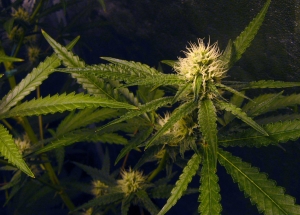Uruguay Lifts Prohibition of Marijuana – Joins Colorado and Washington State
Uruguay became the first country to legalize the marijuana trade throughout the entire nation.

Our medical marijuana lawyers are encouraged by the recent moves toward legalization of marijuana in the United States and elsewhere.
With the legalization of marijuana, Uruguay has become the first country to create a legalized national marketplace for the sale and production of marijuana. The Uruguayan legislation has been approved by the lower house and the Uruguayan Senate but still needs to be signed into law by the 78 year old president. The president of Uruguay has indicated the intention to sign the bill into law.
The Uruguayan legislation is similar to some efforts to legalize marijuana in the United States and allows private citizens to grow up to six marijuana plants in their home.
Individuals will also be allowed to consume 40 grams of marijuana per month that can be purchased from pharmacies for any reason.
An article on Fusion.net reported the moves by Uruguay and the United States to legalize marijuana.
Experts do not expect the United States federal agencies to make any overt policy changes. But as Colorado and Washington have changed their state laws it has put the United States federal government in a difficult position.
The United States continues to view marijuana as a Schedule I drug. This means that the federal government does not recognize any medical value and has a high potential for abuse. Drug-policy experts explain that the United States will be in a weak position to criticize countries that legalize marijuana now that two of its own states have legalized recreational use of the substance.
In recent months Jamaica’s Parliament announced that it would endorse the decriminalization of marijuana. Around the same time, legislators in Morocco announced drafting a plan to legalize the cultivation of marijuana.
A 1961 United Nations treaty prohibits the distribution and cultivation of marijuana for reasons other than scientific and medical uses.
The treaty makes the legalization of recreational marijuana use in Colorado and Washington State particularly interesting. Other countries have become accustomed to the United States enforcing the war on drugs but experts say this is changing.
In November the President of the United Nations International Narcotic Control Board stated that it would be fully necessary for the Control Board to have diplomatic discussions with the United States government in an effort “to stop this nonsense.”
Although the United Nations is talking boldly, the threats are likely meaningless. The United States still provides approximately 22 percent of the United Nations budget – which is larger than any other single nation.
In addition, the United States has traditionally been a very heavy hand when it comes to global drug policy.
The takeaway from the situation is that the United States federal government doesn’t have much choice to but to allow other countries to legalize marijuana when its allowing its own states to do the same.
Experts say not to expect the United States to change global treaties until the federal law has been changed. In the end if Uruguay successfully legalizes marijuana and the United States does not interfere then many more countries could follow suit.
The CANNABIS LAW Group represents growers, dispensaries, collectives, patients and those facing marijuana charges. Call us at 949-375-4734.
Additional Resources:
Single Convention on Narcotic Drugs, 1961, United Nations
More Blog Entries:
Legal Possession: Should the Odor of Marijuana Amount to Probable Cause? , December 5, 2013, Los Angeles Marijuana Lawyer Blog
United States Lags Behind Other Countries in Marijuana Legalization, December 1, 2013, Los Angeles Marijuana Lawyer Blog
 Cannabis Law Group's Medical Marijuana Legal Blog
Cannabis Law Group's Medical Marijuana Legal Blog




